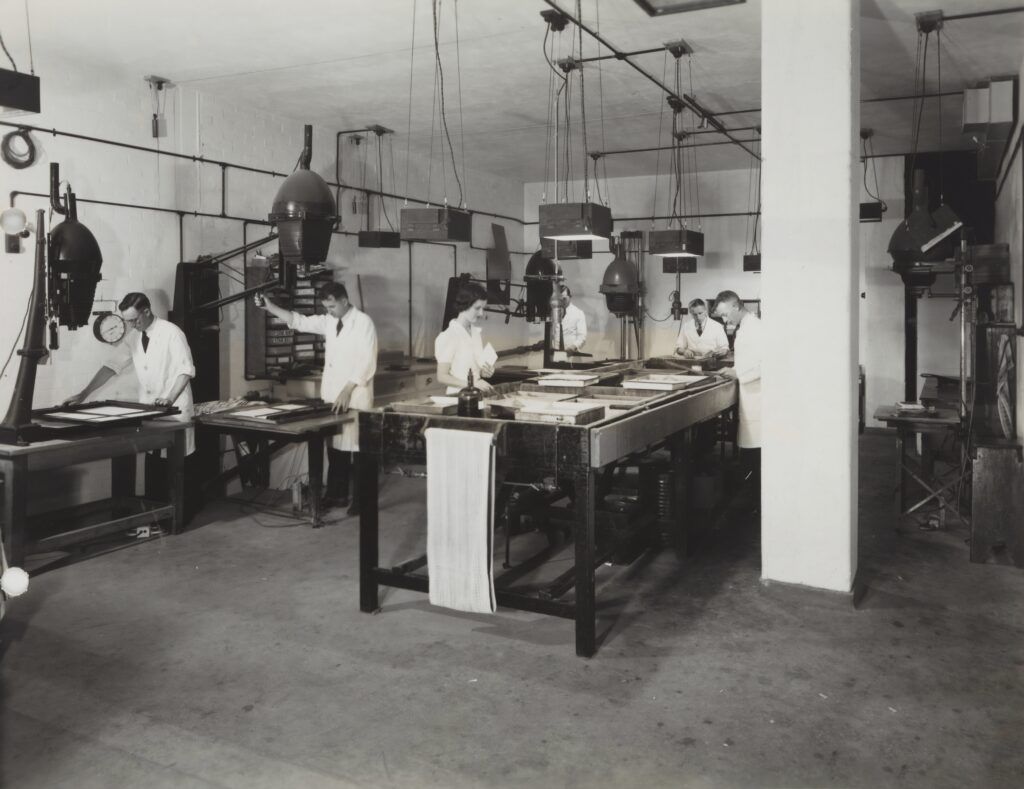In this article, I will provide a comprehensive guide on the essential maintenance tips for industrial workshop machinery. As a specialist in the field, I have encountered numerous challenges in ensuring the smooth operation and longevity of these machines. By following these maintenance tips, workshop owners and operators can minimize downtime, increase productivity, and ultimately maximize profits. From regular cleaning and lubrication to proper storage and inspection routines, each step is meticulously outlined to ensure the optimal performance of workshop machinery. Gain the knowledge and expertise to maintain your industrial workshop machinery in optimal condition, preventing costly breakdowns and ensuring a seamless production process.
Understanding the Importance of Maintenance
Maintenance is a crucial aspect of managing industrial workshop machinery. It plays a critical role in ensuring the efficient functioning of machines and preventing unexpected breakdowns. By conducting regular maintenance, workshop owners can improve the performance and longevity of their machinery, reduce operational costs, and ensure the safety of their workforce.
Prevention of unexpected machinery breakdown
One of the primary reasons for implementing maintenance practices is to prevent unexpected breakdowns of machinery. Regular maintenance allows workshop owners to identify and address potential issues before they escalate into major problems. By conducting routine inspections, lubrication, and monitoring of machine performance, operators can catch and rectify any issues early on, reducing the likelihood of costly and time-consuming breakdowns.
Improvement of machine efficiency and performance
Regular maintenance leads to improved efficiency and performance of industrial workshop machinery. By ensuring that each component of the machine is in optimal condition, owners can maximize the output and productivity of their equipment. Well-maintained machinery not only performs better but also consumes less energy, leading to reduced operational costs and increased profitability.
Reduction in operational costs
Implementing a robust maintenance program can significantly reduce operational costs for workshop owners. By conducting regular maintenance, operators can identify and replace worn-out or damaged parts, preventing further damage to the machine. This proactive approach avoids the need for expensive repairs or even the complete replacement of machinery. Moreover, well-maintained machines consume less energy, resulting in decreased utility bills and overall cost savings.
Ensuring safety of the workforce
Maintenance plays a critical role in ensuring the safety of the workforce operating workshop machinery. Regular inspections allow operators to identify and address potential safety hazards, such as faulty electrical components or loose machine parts. By promptly addressing these issues, workshop owners can create a safer working environment, preventing accidents and injuries. Additionally, routine maintenance includes training sessions on proper machine use and workshop handling and safety procedures, further enhancing the safety of the workforce.
Extending machinery lifespan
Implementing a regular maintenance program is essential for extending the lifespan of industrial workshop machinery. By taking care of each component, lubricating moving parts, and conducting periodic inspections, operators can enhance the durability and longevity of their equipment. This prolongs the lifespan of the machinery, resulting in significant cost savings by avoiding premature replacement.
Identification of Different Types of Machinery
To effectively maintain industrial workshop machinery, it is vital to understand the different types commonly found in workshops.
Machines for cutting and shaping
These machines are primarily used for cutting and shaping various materials, such as metal or wood. Examples include saws, shears, and laser cutters. Ensuring the sharpness of blades, accuracy of measurements, and proper alignment of cutting tools are essential for their optimal performance.
Measurement and testing machines
These machines are used for measuring and testing the dimensions, quality, and characteristics of materials or finished products. Examples include gauges, micrometers, and coordinate measuring machines. Regular calibration and verification of measurement tools are crucial to maintain accurate and reliable results.
Milling and grinding machineries
Milling and grinding machines are used to shape and refine materials through the removal of excess material. Examples include milling machines, surface grinders, and cylindrical grinders. Proper lubrication, alignment, and regular inspection of cutting tools are essential to ensure precise and efficient operation.
Finishing machines
Finishing machines are used to give the final touches to a product’s surface, such as polishing or deburring. Examples include sanders, polishers, and vibratory tumblers. Regular inspection of abrasive wheels, proper lubrication of moving parts, and maintenance of filter systems are necessary for their effective operation.
Material handling machines
Material handling machines are used for loading, unloading, and moving materials within the workshop. Examples include forklifts, cranes, and conveyor systems. Regular inspection of lifting mechanisms, proper lubrication, and maintenance of safety devices are critical to prevent accidents and ensure smooth material handling operations.



This image is property of images.unsplash.com.
Scheduling Regular Maintenance
To ensure the effective maintenance of industrial workshop machinery, it is essential to establish a regular maintenance schedule. This schedule outlines the frequency and specific tasks to be performed for each machine.
Devising a preventive maintenance schedule
The preventive maintenance schedule should be designed based on the manufacturer’s recommendations, operational requirements, and the specific nature of each machine. It should outline the frequency of routine inspections, lubrication, calibration, and other maintenance tasks. The schedule should be flexible enough to accommodate unexpected breakdowns or urgent repair needs.
Importance of adhering to the schedule
Adhering to the maintenance schedule is crucial for reaping the benefits of regular maintenance. Neglecting or falling behind on scheduled maintenance tasks can increase the risk of breakdowns, decrease machine efficiency, and compromise the safety of the workforce. Adherence to the schedule ensures that each machine receives the necessary attention and care, minimizing the likelihood of unexpected issues.
Roles and responsibilities in implementing the schedule
Assigning clear roles and responsibilities is essential for the successful implementation of the maintenance schedule. Workshop managers should delegate tasks to qualified and trained personnel, making sure that each employee understands their responsibilities and has access to the necessary resources for maintenance work. Regular communication and coordination among the maintenance team are key to ensuring the smooth execution of the schedule.
Daily Checking of Machines
In addition to regular maintenance, daily checking of machines is crucial to ensure their smooth operation and detect any potential issues early on.
Inspection of machine parts
Daily inspections should include checking each machine’s parts for signs of wear, damage, or misalignment. This includes examining belts, gears, bearings, and other components. Any signs of imminent failure or the need for adjustment should be immediately addressed to prevent further damage and avoid unexpected breakdowns.
Ensuring proper lubrication
Proper lubrication is vital for the efficient performance and longevity of machinery. Daily checks should involve verifying the level and quality of lubricants, ensuring that each lubrication point is adequately greased or oiled. Adequate lubrication reduces friction, dissipates heat, and prevents excessive wear and tear.
Monitor machine performance
Monitoring the performance of machines on a daily basis allows operators to identify any abnormalities or deviations from expected performance. This can include observing the machine’s speed, vibration, temperature, and noise levels. Any unexpected changes can be indicative of an underlying issue that requires attention.
Checking for vibration, noise, and temperature deviations
Daily checks should also involve observing and listening for any unusual vibration, noise, or temperature deviations. Excessive vibration or noise may indicate a misalignment, loose parts, or worn-out components. Abnormal temperatures could be a sign of poor lubrication, motor overload, or other mechanical problems. Identifying and addressing these issues promptly can prevent further damage and ensure the safety of the workforce.



This image is property of images.unsplash.com.
Worker Training and Education
Effectively maintaining industrial workshop machinery requires well-trained and educated workers. Providing the necessary training and education for the workforce is essential for proper machine use and maintenance.
Training sessions on proper machine use
Regular training sessions should be conducted to ensure that workers understand how to operate machinery safely and efficiently. This includes providing detailed instructions on machine setup, adjustment, and shutdown procedures. Workers should also be trained on troubleshooting common issues and knowing when to seek assistance from maintenance personnel.
Creating awareness of the implications of poor maintenance
Educating workers about the implications of poor maintenance is crucial to instill a culture of preventive maintenance in the workshop. Workers should understand that neglecting maintenance tasks can lead to unexpected breakdowns, decreased productivity, and increased safety risks. By creating awareness of the potential consequences, workers are more likely to prioritize and actively engage in maintenance activities.
Workshop handling and safety procedures
Worker training should also include workshop handling and safety procedures. This includes training on proper lifting techniques, handling hazardous materials, and following safety protocols. By ensuring that workers are well-versed in these procedures, the risk of accidents and injuries can be significantly reduced.
Periodic Detailed Inspections
In addition to daily checks, periodic detailed inspections are necessary to thoroughly assess the condition of industrial workshop machinery.
Identifying wear and tear on parts
Periodic inspections allow operators to identify any wear and tear on machine parts that may not be detected during daily checks. This can include visible signs of deterioration, such as worn-out belts or gears. Identifying these issues early on enables workshop owners to plan for timely replacements, minimizing the risk of unexpected breakdowns.
Inspecting electrical components
Electrical components play a vital role in the operation of industrial workshop machinery. Periodic inspections should include checking the integrity of electrical connections, cables, and control panels. Any loose connections, damaged cables, or faulty components should be immediately addressed to prevent electrical hazards and ensure the safe functioning of the machinery.
Looking for leaks and blockages
Periodic inspections should also include checking for leaks or blockages in hydraulic, pneumatic, or coolant systems. Leaks can lead to fluid loss or contamination, affecting the performance and efficiency of machines. Blockages can impede the flow of fluid or air, resulting in reduced functionality. Prompt detection and repair of leaks and blockages are essential for maintaining optimal machinery performance.
Calibration of machines
Periodic calibration of measurement and testing machines is necessary to ensure accurate and reliable results. Calibration involves comparing the machine’s measurements or test results with known reference standards. It helps identify any drift or deviation in the machine’s performance and facilitates adjustments to maintain accuracy. Calibration should be performed by qualified personnel using traceable reference standards.



This image is property of images.unsplash.com.
Dealing with Breakdowns and Repairs
Despite the best maintenance practices, breakdowns may still occur. Knowing how to effectively deal with breakdowns and repairs is essential to minimize downtime and resume normal operations as quickly as possible.
Steps in assessing breakdowns
When a breakdown occurs, operators and maintenance personnel should follow a systematic approach to assess the situation. This typically involves identifying the problem, analyzing the causes, and formulating a plan for repair or replacement. Proper documentation of the breakdown and the steps taken during the assessment can help in future troubleshooting and prevent similar issues.
Deciding between repair and replacement
In some cases, repair may be a viable option to fix the broken machinery. However, there are instances where replacement may be more cost-effective in the long run. The decision between repair and replacement should be based on factors such as the age of the machine, the extent of damage, availability of spare parts, and the overall cost-effectiveness. Consulting with professional repair services can provide valuable insights for making this decision.
Working with professional repair services
For complex repairs or situations where specialized knowledge is required, working with professional repair services is recommended. These services have the expertise, equipment, and access to quality spare parts to effectively diagnose and repair machinery. Moreover, professional repair services may offer warranties or service agreements that provide additional protection and support to workshop owners.
Proper Cleaning and Lubrication
Proper cleaning and lubrication are integral parts of maintenance that contribute to the efficient and reliable operation of industrial workshop machinery.
Determining appropriate cleaning methods
Each machine may require specific cleaning methods to remove dirt, debris, or buildup that can affect performance. It is essential to follow the manufacturer’s recommendations for cleaning, including the use of appropriate cleaning agents, tools, and protective equipment. Proper cleaning practices remove contaminants, maintain clear and functional surfaces, and prevent the accumulation of harmful debris.
Understanding the role of lubrication
Lubrication is essential for reducing friction, dissipating heat, and preventing excessive wear and tear on machine parts. Workshop owners should understand the lubrication requirements of each machine, including the appropriate lubricants, application methods, and intervals. Proper lubrication ensures smooth and efficient operation, extends the lifespan of components, and reduces the risk of breakdowns.
Identifying signs of inadequate lubrication
Inadequate lubrication can lead to increased friction, overheating, and premature wear of machine parts. Operators should be trained to identify signs of inadequate lubrication, such as increased noise or vibration and excessive heat generation. Routine checks of lubrication levels and quality can help detect problems early on and prompt remedial actions, preventing costly repairs or replacements.
Using Quality Spare Parts
The use of quality spare parts is crucial in maintaining and repairing industrial workshop machinery. Inferior-quality spare parts can compromise the performance, efficiency, and longevity of machines.
Importance of using quality spares
Quality spare parts are designed and manufactured to meet the specific requirements of the machinery. They are made from durable materials, ensuring compatibility and optimal performance. The use of quality spares reduces the risk of premature failures, breakdowns, and the need for frequent repairs. It also helps maintain the warranty validity of machinery, providing assurance of after-sales support.
Problems with inferior-quality spare parts
Inferior-quality spare parts may offer a lower upfront cost but can result in significant long-term expenses. These parts often lack the necessary durability, precision, and quality control, leading to compromised performance and frequent failures. The use of poor-quality spares can also void the manufacturer’s warranty and result in increased downtime and repair costs.
Investing in spare parts inventory
To ensure prompt repairs and minimize downtime, workshop owners should maintain an inventory of quality spare parts. By having the necessary parts readily available, operators can quickly address breakdowns or replace worn-out components. A well-managed spare parts inventory reduces dependency on external suppliers and enables timely maintenance, resulting in minimal disruptions to workshop operations.
Documentation and Record Keeping
Documentation and record keeping are essential aspects of maintenance management for industrial workshop machinery. They provide a valuable reference for tracking maintenance activities, identifying recurring issues, and conducting audits and reviews.
Logging maintenance activities
Logging maintenance activities involves documenting each maintenance task performed, including the date, description, and results. This helps establish a comprehensive maintenance history for each machine, enabling operators to track its maintenance needs, identify patterns, and plan future maintenance activities. Digital maintenance management systems can streamline documentation and facilitate data analysis.
Noting recurring issues and resolutions
Noting recurring issues and resolutions is crucial for addressing root causes and preventing repetitive problems. By documenting the details of each issue, its causes, and the steps taken to resolve it, workshop owners can identify trends, weaknesses, or areas for improvement. This information can guide future maintenance strategies, including adjustments to preventive maintenance schedules or training programs.
Auditing and reviewing maintenance records
Regular audits and reviews of maintenance records ensure the effectiveness of maintenance practices and identify areas for improvement. By analyzing maintenance data, workshop owners can assess the frequency and quality of maintenance tasks, evaluate the performance of machinery, and identify opportunities for optimizing maintenance processes. This continuous improvement approach helps enhance the efficiency and reliability of industrial workshop machinery.
In conclusion, the proper maintenance of industrial workshop machinery is fundamental to ensure its efficient operation, prevent unexpected breakdowns, and extend its lifespan. By implementing a regular maintenance schedule, conducting daily checks, providing worker training and education, performing periodic detailed inspections, effectively dealing with breakdowns and repairs, maintaining cleanliness and lubrication, using quality spare parts, and documenting maintenance activities, workshop owners can maximize the performance, safety, and longevity of their machinery. Investing in comprehensive maintenance practices not only reduces operational costs but also contributes to a safer working environment and increased profitability for industrial workshops.
